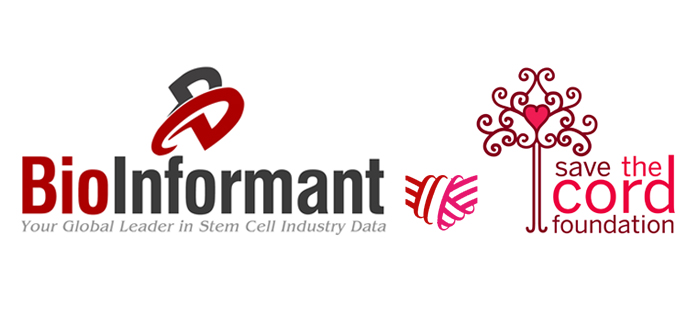PRESS RELEASE; April 1, 2015
WASHINGTON, DC, and TUCSON, AZ
Press release available at PR Web: http://www.prweb.com/
For expectant parents, there are thousands of decisions to make in a short amount of time, including clothes, cribs, names, birthing methods, medical procedures, and more. It can be overwhelming, especially given the short-time frame involved. In addition to these decisions, there is an often overlooked decision: what to do with the extremely valuable stem and progenitor cells contained within the umbilical cord of the expected newborn? There are three options, which are to publicly donate, to privately store, or to discard the umbilical cord as medical waste. Two of those decisions require research and action on behalf of the parents, while the third is what happens when sufficient awareness and education has not been provided to allow parents to make an informed, educated decision.
For decades, transplantation of the hematopoietic stem cells (HSC) found in bone marrow has been a common method for treating blood cancers. It is widely accepted that HSCs can assist with regenerating a patient’s blood and immune system, and potentially help regenerate other cell populations as well. Similar to bone marrow, a newborn’s umbilical cord blood contains HSCs, cells which can be used to treat more than 80 conditions, including blood cancers, immunodeficiencies, metabolic disorders, and more. Furthermore, the number of conditions treatable with cord blood transplant will continue to increase with medical progress, likely at exponential rates, because medical advances tends to follow the same patterns of progress as technologic innovation (e.g. Moore’s Law states that computer processing power doubles every two years).
To further complicate the decision-making process for parents, both public and private cord blood banks exist. With public banking, expectant parents can donate their newborn’s cord blood at no cost, allowing for the unit to be stored in a public registry for future use by any member of the public. There are also private cord blood banks, which are facilities that store a newborn’s cord blood for a fee, usually about $1,000 – $2,000 for collection and processing, plus $150 per year for storage. In this situation, the cord blood unit is only available for private family use. Both of these options are valuable, because they preserve cord blood and tissue stem cells for future medical use. Between free public donation and fee-based private storage, parents of all economic backgrounds can ensure that their newborn’s cord blood will not be discarded.
Unfortunately, the vast majority of cord blood and tissue is not used for either of these purposes, but is thrown away as medical waste after delivery. The major limitation to cord blood banking in the U.S. and worldwide has not been lack of desire for the service, medical utility, or approved clinical applications, but a lack of awareness. A study published in the Journal of Reproductive Medicine identified that a third of expectant parents are unaware of the option to preserve cord blood. Of the two-thirds who have some knowledge, 74% describe themselves as “minimally informed.” A recent “Parent Survey” conducted by BioInformant Worldwide, LLC, that incorporated 600+ responses from recent and expectant parents identified that awareness percentages have shifted little since the prior study was published.
For this reason, Save the Cord Foundation, a non-profit dedicated to cord blood banking awareness and education, and BioInformant Worldwide, LLC, a research firm specializing in the cord blood industry, have partnered to launch an awareness campaign called “Cord Blood Banking Awareness: Educating America and the World.” The campaign is a global effort that will educate currently expecting parents, as well as future parents, grandparents, siblings, and friends, about the medical benefits of cord blood preservation. The campaign will involve distribution of weekly facts about cord blood banking awareness, as well as distribution of media content and videos sharing factual information about cord blood banking awareness rates in the U.S. and other countries worldwide.
During the high-pressure period between which a child is conceived and born, making informed, educated decisions is a challenging endeavor. For this reason, it is recommended that individuals get educated about cord blood banking before having to make a time-sensitive decision. In addition, grandparents, siblings, and friends can empower themselves to assist with the decision-making process, which is why cord blood banking awareness is an important public health discussion.
Save the Cord Foundation
Save The Cord Foundation is a United States-based 501(c)(3) non-profit charity. It provides global advocacy for umbilical cord blood education, awareness, research, and legislation. It was established to provide educational awareness and to distribute unbiased information concerning the life-saving benefits of the cord and the value of preserving this valuable natural resource. To learn more, please visit: www.savethecordfoundation.org.
BioInformant Worldwide, LLC
BioInformant specializes in global strategic reports for the cord blood and stem cell industry. A pioneer in the field, it is the only research firm that has served the stem cell sector since its emergence. BioInformant research has been cited by prominent news outlets that include the Wall Street Journal, Nature Biotechnology, Medical Ethics, and more. BioInformant is committed to increasing awareness of stem cell and regenerative medicine applications worldwide. To learn more, please visit: www.BioInformant.com.
Press Contact:
Cade Hildreth, President/CEO of BioInformant
Hildreth@BioInformant.com
703.859.7617
